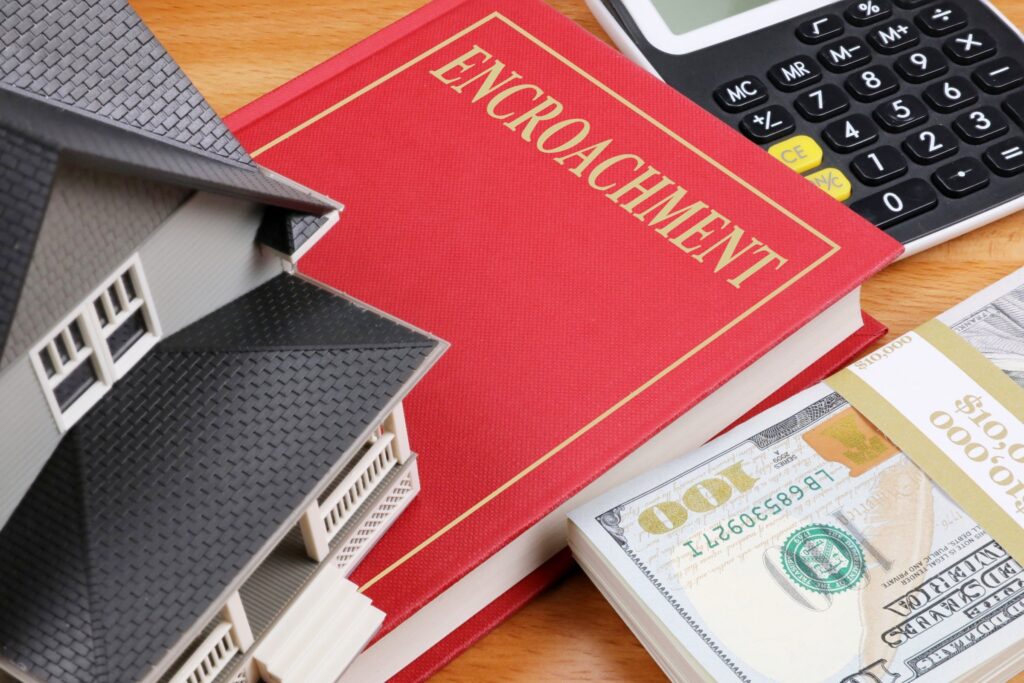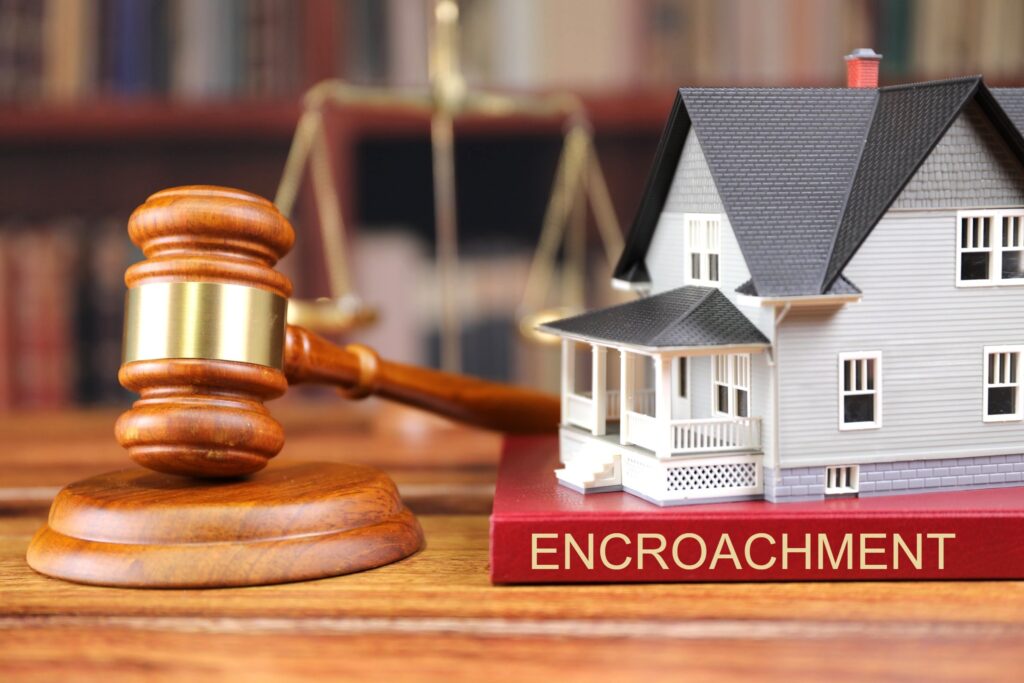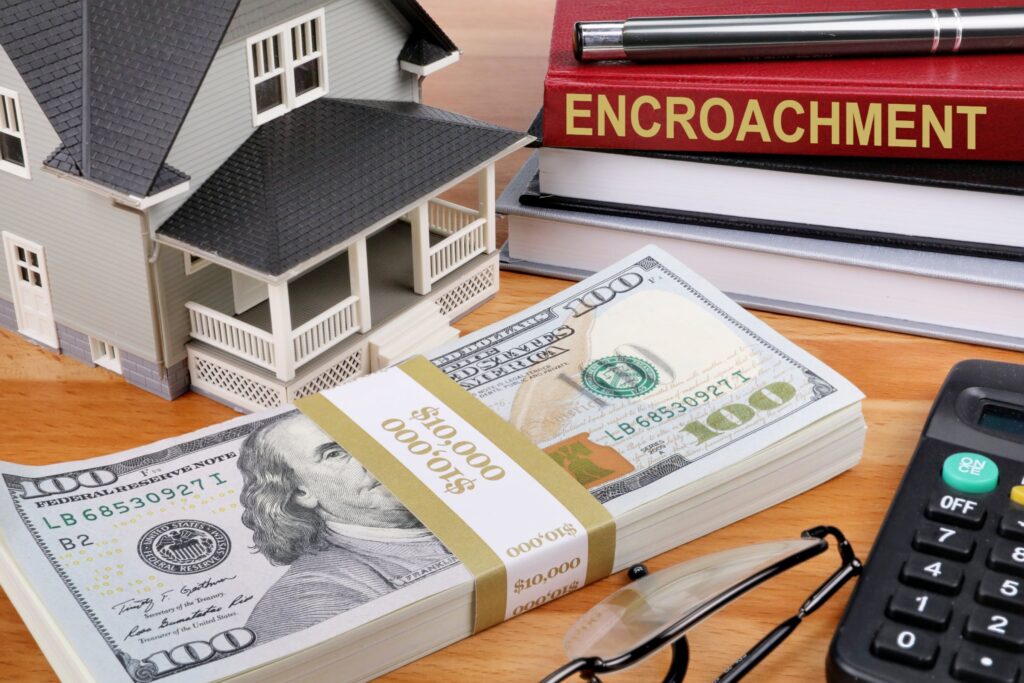
In the world of real estate, various terms and concepts can be complex and confusing, especially for those who are new to the industry. One such term that often raises questions is “encroachment.” What exactly is encroachment in real estate, and how does it affect property owners? In this article, we will provide a comprehensive definition of encroachment and explore its implications in the context of real estate.
What is Encroachment ?

In the realm of real estate, refers to the unauthorized intrusion or extension of a person’s property, structure, or improvement onto the land of another individual or entity. This encroachment can take various forms, including physical structures like buildings, fences, or driveways extending beyond property boundaries, as well as vegetation like trees, shrubs, or roots encroaching onto neighboring land.
Encroachments

To define encroachment more succinctly, it can be described as the act of one property owner making use of or occupying a portion of another property owner’s land without legal permission or right. Encroachments often occur unintentionally, as property owners may not be aware of the exact boundaries of their land. However, whether intentional or unintentional, encroachments can lead to disputes and legal issues.
Encroachments are a common issue in the real estate sector, and they can arise in various situations. Here are some scenarios where encroachments in real estate may occur:
- Building Structures: One of the most typical forms of encroachment involves the construction of buildings or structures that extend beyond the property lines. This can happen when property owners misinterpret their boundaries or fail to conduct a proper land survey.
- Fences and Walls: Encroachments can also involve fences, retaining walls, or other boundary markers that are placed in the wrong location, infringing on a neighboring property.
- Overhanging Trees and Roots: The growth of trees, branches, or roots from one property onto another’s land can constitute encroachment. This can lead to disputes over property damage and maintenance costs.
- Easements and Rights of Way: In some cases, encroachment issues arise due to misunderstandings or disputes over easements or rights of way. These are legal permissions for one party to use another’s land for specific purposes, such as access or utilities. Violating the terms of an easement can lead to encroachment issues.
Read Also
Best Ways to Make Money Farming That are Perfect for 2024
Encroachment in Real Estate

Encroachment in real estate poses several challenges and consequences for property owners, including:
- Legal Disputes: Encroachments often result in legal disputes between neighboring property owners. The affected party may seek remedies through litigation, which can be time-consuming and costly.
- Property Value: Encroachments can affect the value of a property. Potential buyers may be discouraged from purchasing a property with ongoing encroachment issues, or they may negotiate a lower price to compensate for the encumbrance.
- Title Issues: Title insurance and property title transfers can be complicated by encroachments, potentially delaying or jeopardizing real estate transactions.
- Maintenance and Liability: Property owners may be held responsible for the maintenance and repair of encroachments, which can lead to financial burdens.
Encroachment Property

To avoid encroachment issues when purchasing or owning a property, it’s essential to take proactive measures:
- Land Surveys: Conduct a land survey to accurately determine property boundaries. This will help prevent misunderstandings about where one property ends and another begins.
- Easement Agreements: If your property has easements or rights of way, ensure you fully understand the terms and rights associated with them. Clear agreements can help prevent future disputes.
- Communication: Maintain open communication with neighbors. Discuss property boundaries and potential encroachment concerns to address issues before they escalate.
- Legal Assistance: In cases of encroachment disputes, seek legal counsel to understand your rights and options for resolution.
In summary, encroachment in real estate refers to the unauthorized intrusion of one property onto another, often due to boundary misunderstandings or disputes. It can take various forms, from physical structures to vegetation, and it can have legal, financial, and property value implications. To avoid encroachment issues, property owners should prioritize accurate surveys, clear communication, and legal assistance when necessary. Understanding encroachment is essential for maintaining harmonious relationships with neighbors and protecting property rights in the complex world of real estate.






